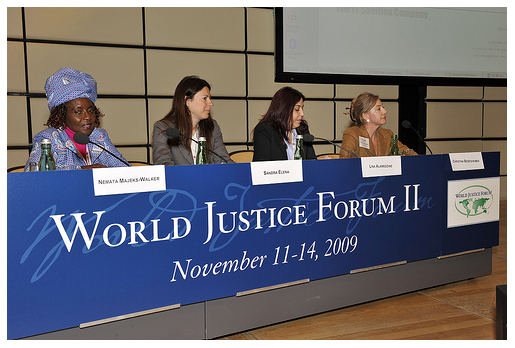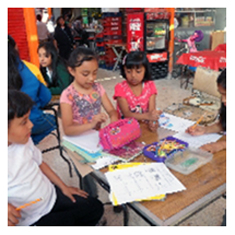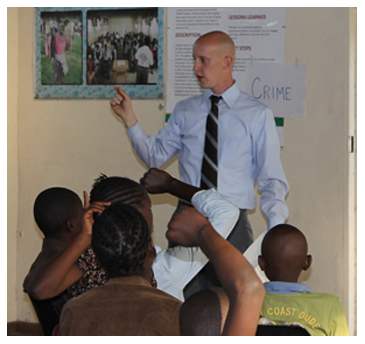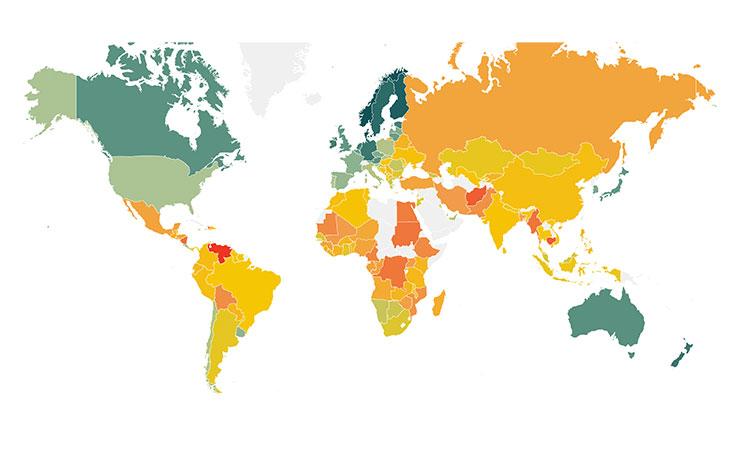
In honor of International Women's Month, we are highlighting three programs incubated by the WJP that address the rights of women and girls. With seed grants and support from the WJP, these programs are helping to break down barriers that women and girls face in accessing justice.
Take a look at three programs strengthening the rule of law and women's rights in different countries and political contexts; from using village radio programs to educate women about their rights, to building transnational coalitions to prevent exploitation of girls, to creating curriculum to teach youth about equal rights in order to break the cycle of gender discrimination.
Translating & Broadcasting Laws About Women's Rights: The 50/50 Group, Sierra Leone
“Even though women have created very great paths for bringing peace to Sierra Leone when we had the war, these women were relegated to the back seats when the new government came into power, so this is why we are focusing attention on empowering women and always. And the legal empowerment of women was very important for us. Because it was only when women understood the laws that they were able to use it to their advantage.” - Nemata Majeks-Walker, Founder, The 50/50 Group Sierra Leone

Despite legal protection and rights to obtain a divorce, inherit property, and seek justice for domestic violence, many women were unaware of their rights or reluctant to pursue them because of societal pressures to protect the family or to use traditional justice. In response, the 50/50 Group translated the three gender related acts into four local languages. These were distributed widely, reaching thousands of people, through radio and group listening events, which helped not only teach women of their rights, but inform and sensitize men as well.
Protecting Girls from Sexual Exploitation in Latin America: ECPAT

Creating Curriculum on Gender-Based Violence: Street Law Zambia

Gender based violence is incredibly high in Zambia, with 49% of Zambian women reporting being abused on the basis of gender at some point, according to a 2007 Amnesty International Report. To address the lack of respect for basic rights, Street Law Zambia aims to change this culture by educating youth of the issues and the legal rights around them. With a lack of legal education in local schools, this project is developing a pilot curriculum to teach about gender based violence and implement the curriculum through the help of a local lawyer in 4 underprivileged middle schools.
******
Photo Credit:
1) Spotlight: Play. Express. Be Free/Flickr
2) Insert A: WJP Forum II
3) ECPAT Mexico: Gallery
4) Seattle University of Law: "Graduate takes Street Law to Zambia"






